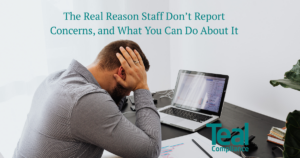The Solicitors Regulation Authority (SRA) has long desired more robust punitive capabilities against traditional law firms. They have historically possessed the ability to impose significant fines on Alternative Business Structure (ABS) firms and can forward cases to the Solicitors Disciplinary Tribunal (SDT) for an agreed decision’s endorsement. However, there are now new SRA fining powers. These powers were broadened, enabling them to impose a fine of up to £25,000 without SDT referral and approval.
Recent case study
A recent noteworthy fine was imposed on an Oxfordshire-based two-partner firm, Ferguson Bricknell, for Anti Money Laundering (AML) breaches. The firm was penalised £20,000 for violations of the Money Laundering Regulations and the SRA’s Standards and Regulations.
Although £20,000 might appear insignificant to some, for a small firm, it’s a considerable sum! If you consider a £200 hourly rate at 20% profitability, a lawyer would need to work for more than 14 weeks to generate the profit to cover it. This is because fines are paid from profit; there’s no special budget set aside for them!
The full decision is a worthwhile read, providing insights into the firm’s declaration to the SRA of a compliant Practice Wide Risk Assessment. The SRA periodically requests firms to confirm their compliance with certain regulations and verifies this by checking a sample of firms. In this instance, the SRA disagreed with the firm’s assessment of compliance and investigated further into its AML conformity.
Key take aways from the case
The case provides valuable insights into the SRA fining powers and their approach, and offers seven key takeaways:
Number 1
When the SRA communicates with a firm, ensure a response is made. If your Compliance Officer for Legal Practice (COLP) is the recipient, ensure they’re checking their spam emails as the SRA’s emails often land there.
Number 2
If you claim compliance, be certain that you’re indeed compliant. There is an abundance of guidance, including free templates for Practice Wide Risk Assessments. Never claim compliance if it’s not the case.
Number 3
Keep up with reviews. Set reminders and take action. To show that you’ve reviewed a document, log the date and reviewer’s name (and approval if needed) within a version control table in the document.
Number 4
Consider establishing an independent audit function. Although not mandatory for all firms, it’s crucial for those of significant size and nature. The audit doesn’t have to be external, but in smaller firms, it must be conducted by someone independent of the people who oversee the policies, controls, and procedures.
Number 5
Regularly train your staff. The latest Legal Sector Affinity Group Guidance emphasizes annual refresher training. Additionally, the Money Laundering Reporting Officer (MLRO) and the Money Laundering Compliance Officer (MLCO) should receive specialist training for their roles.
Number 6
Conduct a matter risk assessment, as required by the 2017 Money Laundering Regulations. The SRA expects to see an assessment on every file falling within the regulations’ scope, with enough information to judge the risk assessment’s accuracy.
Number 7
Perform source of funds and wealth checks when necessary. Make sure it’s complete before accepting or moving any transactional money through the client account.
The case underscores the SRA’s commitment to enforcing AML Compliance. They’ll act against non-compliant firms, even if there are no actual money laundering allegations. Firms are expected to take their responsibilities seriously, with disciplinary actions waiting for those who don’t.
Get in touch
If you need advice or guidance with aml compliance or regulatory compliance, we’re here to help you. Simply get in touch with one of our friendly experts today.




